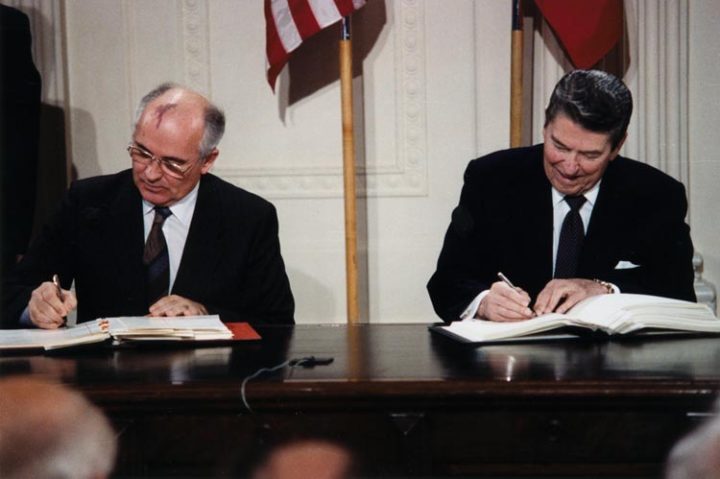The US’ unilateral withdrawal from the treaty – originally signed by the United States and Russia in 1987 – comes after negotiations in Geneva, Switzerland, fell through on Tuesday. Thompson claimed that Russia is in breach of the treaty, and that Moscow’s 9M729 rocket violates the terms of the agreement.
Under the agreement, signed by Ronald Reagan and Mikhail Gorbachev, land-launched nuclear missiles with a range between 500 and 5,500km are banned. The Russian delegation at Geneva accused the US of “exacerbating the situation,” and Deputy Foreign Minister Sergey Ryabkov told reporters that “Russia is strictly complying with the INF Treaty.”
In an interview published on Wednesday, Russian President Vladimir Putin said that Russia “has no interest in a new arms race” with the US, but warned the Trump administration against withdrawing from the treaty, saying “such a course will have the gravest consequences.”
Trump first threatened to pull out of the landmark agreement last October, telling reporters “we’ll have to develop those weapons.” Reacting to Trump’s announcement, Gorbachev issued a similar warning to Putin, calling Trump’s planned withdrawal a “dire threat to peace.”
US Ambassador to NATO Kay Bailey Hutchison said on Wednesday that Russia will have six months after the US withdrawal to prove compliance with the treaty, if Moscow wishes to preserve the agreement.
The INF treaty was penned at a time when the United States and Soviet Union were the world’s chief nuclear competitors. Speculation has risen that regardless of compliance issues, the Pentagon feet hamstrung by the terms of the treaty, which does not restrict rising powers like China.
As such, Russia suggested that rather than dropping the agreement, both sides could negotiate expanding it to include China, Iran, North Korea and other states thought to possess short- and intermediate-range missiles.






